David August: La Conversione
An intimate conversation with one of contemporary music's most original talents.
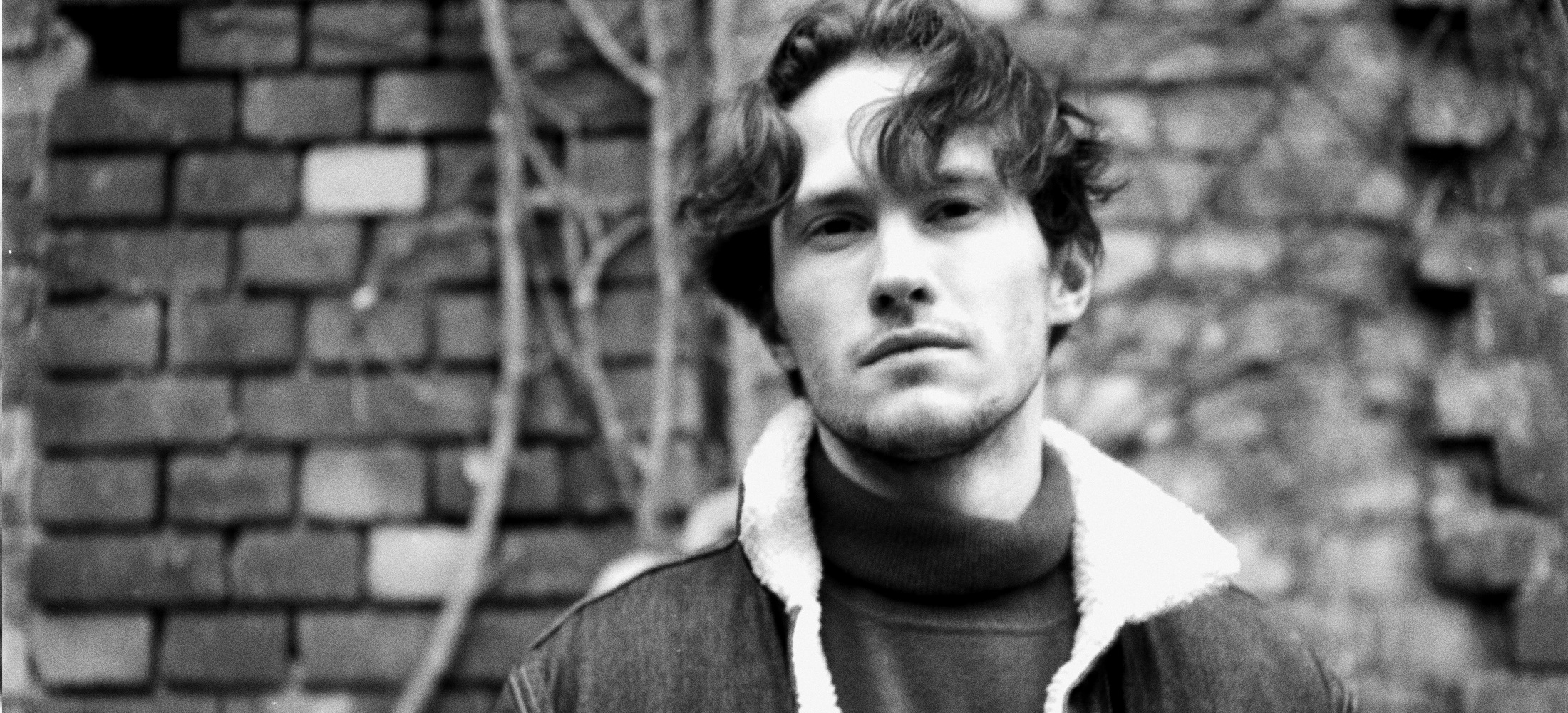
David August: La Conversione
An intimate conversation with one of contemporary music's most original talents.
On February 15, 2017, David August announced that he was taking a break from music. “I feel that some time needs to pass, until a new story can be told,” his post read. It was interesting timing given that he had just graduated from university and, with a reputation as a simply prodigious young talent, was finally free to focus all his energy on music. He surfaced again in March of this year, firstly with DCXXXIX A.C. and, more recently, with D’Angelo, two albums unlike anything we’d heard from August before. To hear the full story behind these works, William Ralston travelled to Berlin for a lengthy conversation as deeply personal as the work that inspired it.
Grunewald forest is a delightful and historic area of the world. 30 years ago, with the Berlin Wall still to tumble, the woodland and the various townships that engulf it were considered a haven for those struggling with the claustrophobia of life behind the Iron Curtain, the natural lakes and luscious open spaces a welcome escape from the bleak cityscapes of the GDR no more than 30 minutes away. And while the years since have eroded this distinction, there are few better places in and around the German capital better equipped to calm the mind and sooth the soul; it’s proven to be popular among Berlin’s artistic community for a reason. Among them is David August, a deep and composed young artist who has sought solace there while undergoing a period of artistic transition distanced from the public eye. He suggests that we make a visit one weekday afternoon for a rare and extensive conversation about the recent ongoings on his life.
The announcement came in February 2017. “I feel that some time needs to pass, until a new story can be told,” the post read, “…It’s time to disconnect for a while, meditate on life and music, and try to find an undiscovered path in both.” Though accepting, the reception was one of with disappointment and surprise: a pair of typically delicate 10”s on Ninja Tune’s Counter Records and a collaboration with the Deutsches Symphonie-Orchester had cemented August’s reputation as one of electronic music’s most original prospects. Still the right side of 30 and having just completed six years of full-time study at Berlin’s Tonmeister, a revered musical and technical institution, August was now free to produce and perform without the distraction of formal education. Up until that point, demand for August sets had exceeded supply: my foggy memory can clearly recall the swell of anticipation before a 2015 Barcelona performance, an excitement no doubt accentuated by this necessary elusiveness but fuelled by one of Boiler Room’s most memorable sets—now exceeding 7,000,000 views—and August’s coming fourth in Resident Advisor’s “Top Live Acts” list. Now felt like a strange time to take some time out.
But, as is typical of August, the decision was far from knee-jerk or without reason. Even in our conversations, as we sit there on a bench overlooking one of the area’s many lakes, August overcomes the temptation to jump into any response; each of my questions is met with a pause to allow to him reflect, seek the right answer, and play it out verbatim on his internal speakers before adding it to the record. He stares into the distance to think, legs entwined, his slightly dishevelled brown locks blowing in the warm breeze; he turns to face me only when there is a point he wishes to stress. “I had musical exhaustion,” he explains, pausing, his eyes now engaging with mine. “All the music I had put out was functional and fun but I never felt like I was really telling something.” It was a feeling that had been lingering for some time but had become more defined during 2014 and 2015, exacerbated by an omnipresence in the party scene and a strengthening dialog with his Italian origins. “I felt like I had one one foot in the past and one in the present because I was studying these [Italian] artists and at the same time I had to reflect on present societies,” he explains. He wished his music to have “authenticity” and “direction,” and this required time and space for contemplation and reflection. “I came to the point where I couldn’t make music anymore if it wasn’t personal to me,” he adds.
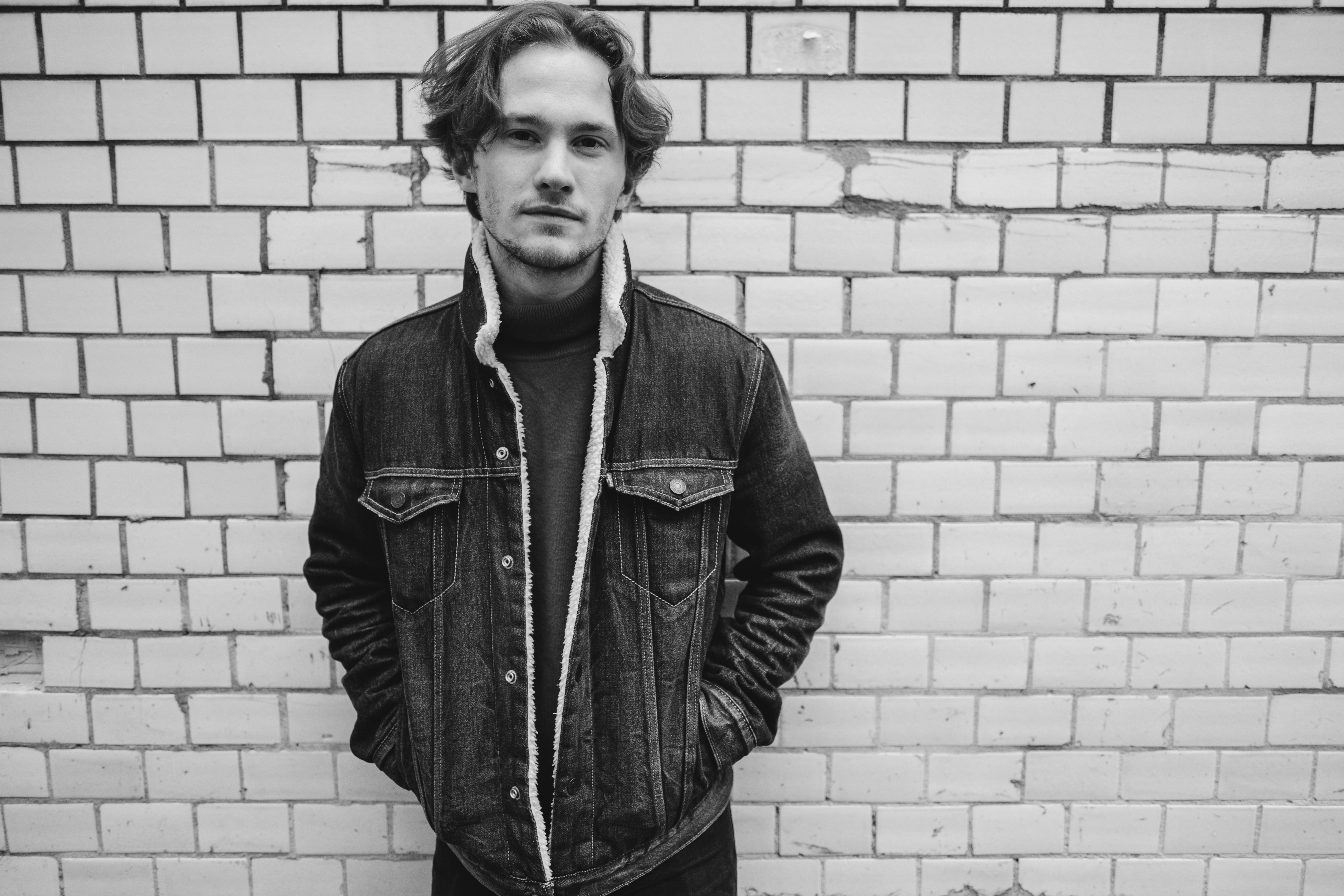
The story begins in Hamburg, Germany. After his music-loving parents divorced when he was 10, August and his one older brother—Sebastian, a musician and record engineer—were raised by their mother, Teresa, an Italian immigrant who encouraged her sons’ musical endeavours; having shown an early promise on the piano, David was signed up for private after-school classes. His mother explains to me that David’s musical tendencies were obvious from the age of one, when she sat with him in his brother’s piano lessons. “Suddenly, feeling a particularly rhythmic motive, David began to dance the music, punctuating with his body the rhythm performed on the piano,” she recalls. “Here, at that moment, it was clear that music was a joy for him, an almost physical necessity.” August can distinctly recall feeling “certain emotions” and “connected” while listening to and playing music.
And so he proved himself to be a natural on the piano, and quickly began working on his own compositions. Though his natural aptitude was never in question, distractions became prevalent as adolescence dawned, stirring an unwillingness to invest the hours required of competitive standard. On several occasions, August’s teacher called his mother “desperate” that time be called on her failing attempts to motivate and teach. It wasn’t until the age of 17, during August’s final years of high school, that perspectives reverted and interest was renewed. “I began to understand the power of music,” August recalls.
Enrolment at Tonmeister felt like a logical progression. August’s “dream” at this point was to follow in his brother’s footsteps by becoming a recording engineer and the Berlin school’s six-year course remains one the the world’s finest in this bracket. Competition for places, therefore, is extremely high: all successful applicants must exhibit a strong knowledge of classical music and music theory via a challenging admission test that August himself failed the first time round after nearly two years of preparation, along with 76 of the other 80 applicants. “I think I studied more to get into the programme than actually during it,” he jokes. He began his placement in April of 2011.
With such ambitions, August’s dabbling in electronic music long played second fiddle to his studies. Interest was sparked by hearing some early Armand van Helden and then attending school parties where there were DJs playing “quite horrible [electronic] music,” he recalls. The appeal came from the physical aspect, “the purist form of freedom,” August says, and something that classical music, “mental masturbation,” could not offer. “Making people happy, making them dance, inspired me,” August explains; dance music was “refreshing” and “filled a gap” that he didn’t know he had. He began DJing at friends’ parties and soon connected with Hamburg’s party scene, aged 18, sneaking into Diynamic’s EGO club, an intimate space that cemented his craving to make people move. EGO quickly became a platform that allowed him to to learn the the ropes of DJing; his first gig saw him open up for Nina Kraviz, and he later earned himself a residency. He first discovered techno and minimal, but an affiliation with house became apparent through artists like Martin Stimming (a.k.a Stimming), whom August cites as a source of inspiration during a period when he was still seeking to define his preferences.
At 16, August began using his brother’s computer to make his own productions and saw early releases Oliver Koletzki’s Still Vor Talent. In these early successes came a change of tact: August’s schooling had instilled in him a knack for serving the composer, a foundation of classical music. He’d begun to feel the urge to express himself more as an artist during the late days of high school but it had taken some years for these desires to crystallise and properly manifest themselves in his work. “The artists who stand out are the ones who put their own vision and perspective on their music,” he says. “It became my priority to express myself rather than only serve others,” he explains. Beginning to take his music more “seriously,” August invested more time and energy in finding artists that touched on electronic realms, among them Portishead, Radiohead, and Massive Attack.
And with this came an adjustment in aesthetic. Instant Harmony, a 2010 Diynamic debut, revealed an August in transition: the melodies were smoother and the beats sophisticated and slowed down, evidencing a young artist approaching a distinguishable artistic voice. Taking a year out from his educational commitments, in 2013 August recorded Times, a debut album of delicate mid-tempo house that marked his first explorations in connecting real instruments and acoustic signals with electronic editing and sound design. It was also his first attempt at creating something with a personal narrative, but was marred by growing insecurities about what he was doing and where he was going artistically. He compares it to a “little child that slowly starts to learn how to walk and eventually falls down.” The release, well received by and large, fuelled long-standing comparisons with Nicolas Jaar—even though August was yet to really familiarise himself with Jaar’s work—both for the similarities in styles and parallels in their respective narratives. Excitement around him reached a new level; aged only 23 and still in school, he’d produced an album with more singular artistic voice than those many years his senior.
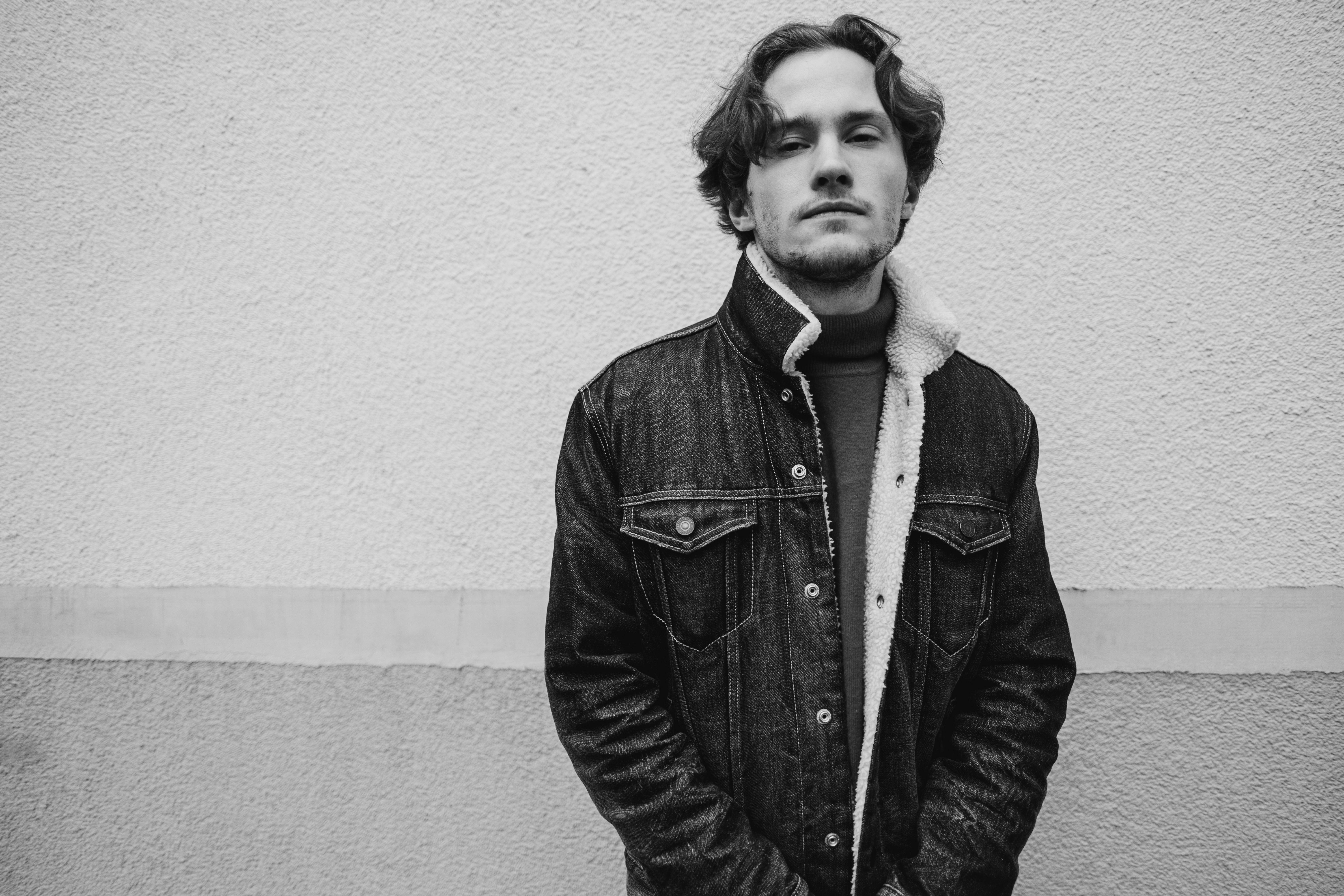
Those around August, those who were around this shy, committed, and intensely private musician around this time, recognised his promise immediately. “David has an exceptional and somewhat unparalleled talent for melodies and arrangements, which was immediately evident when I first heard the demos he sent to me,” Oliver Koletzki tells me. August attributes this to his classical education: “I think I’ve never been good at the electronic side of it [making music],” he says, “but what I have, what I’ve always put into my music, is that I know how to make chord progressions, I know how to move around a harmonic rhythm, and such things, so this has always made it easier for me to create something.” While August is by no means unique in that he’s been musically trained, it’s hard to deny that you can hear it in his music.
August’s mother recalls similarly. A music lover herself, she was quick to recognise David’s “extraordinary ability in handling all the sounds of life, even those that appear as noises to a normal ear, thus making listening to his music an immersion in a three-dimensional world.” Although she didn’t find too strong a connection with his early music, it was enough to prove David’s abilities in making music with a “strong emotional impact and sensitivity,” and she believes that this has simply become more refined over time. She also stresses “the depth of his research,” from which each production is born.
And in this latter statement there comes no uncertain truth: the point to which I continually return as I note August’s maturity, unbridled passion for his work, and sense of humour that bubbles to the surface of an otherwise serious discussion, is just how much his art means to him. This is no endeavour driven by vanity or self-validation; rather, music is something he cannot do without, and it’s clear in his convoluted answers that he’s still using it as a medium of seeking answers and meaning. Some people talk to think and others think to talk, and August is the former, despite the lengthy interludes between question and response, often filled with him rolling or taking tokes of a cigarette. He describes music as his “language” and labels making it is a “necessity”; meanwhile, there’s a quiet frustration at those who abuse the privilege. “I think too many people do this job in order to satisfy their ego but actually they are abusing this art to make themselves feel better and this is something I cannot relate to.” It is this purity in intention, coalesced with an enjoyment in making people dance, that lies at the root of this first chapter of his work.
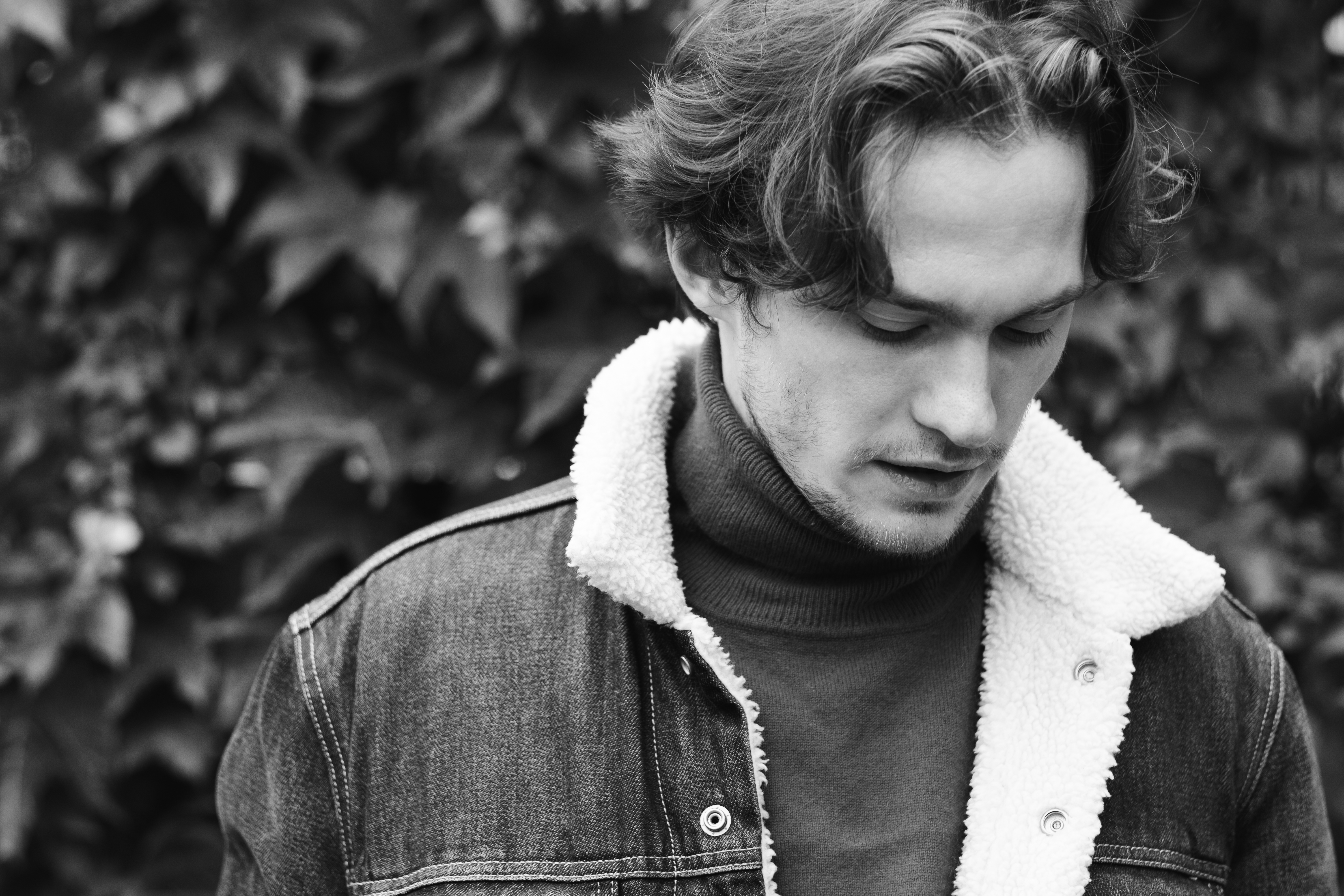
The pages began to turn in late 2014. As his profile continued to blossom, driven by an appearance on the imperious Innervisions and a new show, started in 2013, that had seen him ditch the CDJs in favour of playing mostly his own stuff, reworking it live each time, a sense of restlessness grew. Never one for electronic music culture and the associated indulgences, August found himself sinking deeper into a world of discomfort and began seeking aid. These feelings were compounded by the inevitable expectations that accompany success. For all the joy it brings, contemporary dance music can at times feel shallow and soulless, and August needed more. 2016’s “J.B.Y.,” meaning “Just Be Yourself,” is a reflection of this sentiment.
These doubts marred August’s final months of student life. “I had all these questions around me about my identity and my origins and regarding my own personality,” he recalls. His work began to feel unauthentic and insincere: culture from his mother’s family—influential artists like Caravaggio, Dante, Michelangelo, Palestrina—had always evoked the deepest emotions in August and time had highlighted the need for him to reference it in his music. “It’s a big part of me all this culture, but I never put it into music because I was afraid of being too honest but it came to the point where I couldn’t make music anymore if it didn’t have a dialogue between myself and Italian history,” he explains. In desperate need of answers, August arranged a trip to Florence, Italy, in the late summer of 2016. With its rich history of 14th and 15th century artists, and also being a little unknown to August, the serene Tuscan city was a logical port of call. To facilitate the transition, August rented a small studio space in the hills and set about writing music, freed from the shackles of external expectation.
The fruits of his labours sprouted in February 2017. Graduating from Tonmeister, August announced his hiatus with the intention of focusing all his energies on connecting his personal story with those of his Italian ancestors. He began researching these artists, their inspirations and ideas, all the while assessing links between the past and his own work; of particular importance was Pierluigi da Palestrina who, having been born in Palestrina, the city of August’s mother’s birth, became one of the most illustrious Renaissance composers; and Girolamo Frescobaldi, an early Baroque composer with similar origins. (August’s new live set includes a rework of a Frescobaldi cembalo piece that sees him stand apart from his machines and just observe the audience, referred to as a “passive performance.”) Meanwhile, August enjoyed time with friends and family, a necessary sacrifice of such early success; and this contributed to a newfound consciousness with his work—a sense of purpose that had for so long felt so distanced. He explains that he can hear the blueprints of these intentions in his late Counter releases, but it had taken the hiatus for them to become sufficiently defined for implementation. He began with DCXXXIX A.C, his first venture into ambient music similarly founded on these cultural confrontations, written as a soundtrack to the birth of Palestrina. And then, with a clear mind at the turn of the year, he reverted to his Berlin studio to continue writing what would become D’Angelo.
The results of this transformation are striking. August describes D’Angelo as a soundtrack to a “subconscious part” of his life, labelling it it as “autobiographical” in that it traces a path from the past to the present day. Opener “Narciso” pictures a birth, and the album closes with “True Heart,” reflecting the present day with a more contemporary aesthetic, and named to signify that August has now found meaning. “All the other tracks have the dust of the past on them,” August says. “The connection between the past and the present has transcended in me so much that I feel I am walking literally through this album to arrive at the present time.”
Drifting between gothic rock and psychedelic downtempo, the album is experimental but also deeply purposeful and personal, each note as measured as his responses to my questions. Besides “True Heart,” which draws no connection with the past for the reasons above, influences of these early composers are evident throughout: August’s employment of choral voices is a direct reference to Palestrina; he sampled them all (A, E, I, O, U,) from “Coro Polifonico Città del Palestrina” in different octave ranges so as to have melodic freedom.“Narciso,” the “complex nucleus” of the record, is a reference to the Italian myth of the same name and also Caravaggio’s painting “Narcissus.” Listen carefully and you can hear samples of August’s mother calling his name and also the bells at the monastery in front for family’s Italian home. It connects to modern society by criticising narcism, ego and, superficiality.
Elsewhere, the lyrics of “33CHANTS” are a dialogue with Dante, writer of “Divine Comedy”; “See the Light / On the other side / Where the leaves are green / I know you’ll make it right,” they say. “The Life or Merisi” is a sonic interpretation of Caravaggio’s life, aiming to capture the violence and his obsession with truth; “The truth is on the other side / A Ballad of a Hero” read the lyrics. August wrote parts of the album with Caravaggio’s “Amor vincit omnia” painting on one screen, DAW on the other, and references Caravaggio’s “chiaroscuro,” meaning a contrast between light and dark, by emphasising contrast in the music; often you’ll hear a disturbing sine tone on top of a choral sound, or a harmony disturbed by harshness.
Important in this evolution, too, was a more natural maturity. Outside of his research August found himself digging into German krautrock, in particular the work of Ash Ra Tempel whom he cites as having a “huge impact” on him, both personally and professionally. He also found himself reading up on spirituality and has been practising meditation on a daily basis for nearly three years. “I was looking for a depth in expression that is not accessible with pure rationalisation,” he says. “Creating should be subconscious communication.”
You can still hear David August in there—the sophistication; the melodies; the energy—but he’s become refined in his voice. And while his earlier work had one eye on the listener, on making them happy—on making them move—he was now drawing inspiration from the inside, blissfully ignorant to external reception. “I had always felt limited in some way because I didn’t have the confidence to step away from what people were expecting,” he says. “The reaction to your music should never be the motor for what you make.” With this comes a craved purity and, most importantly, authenticity.
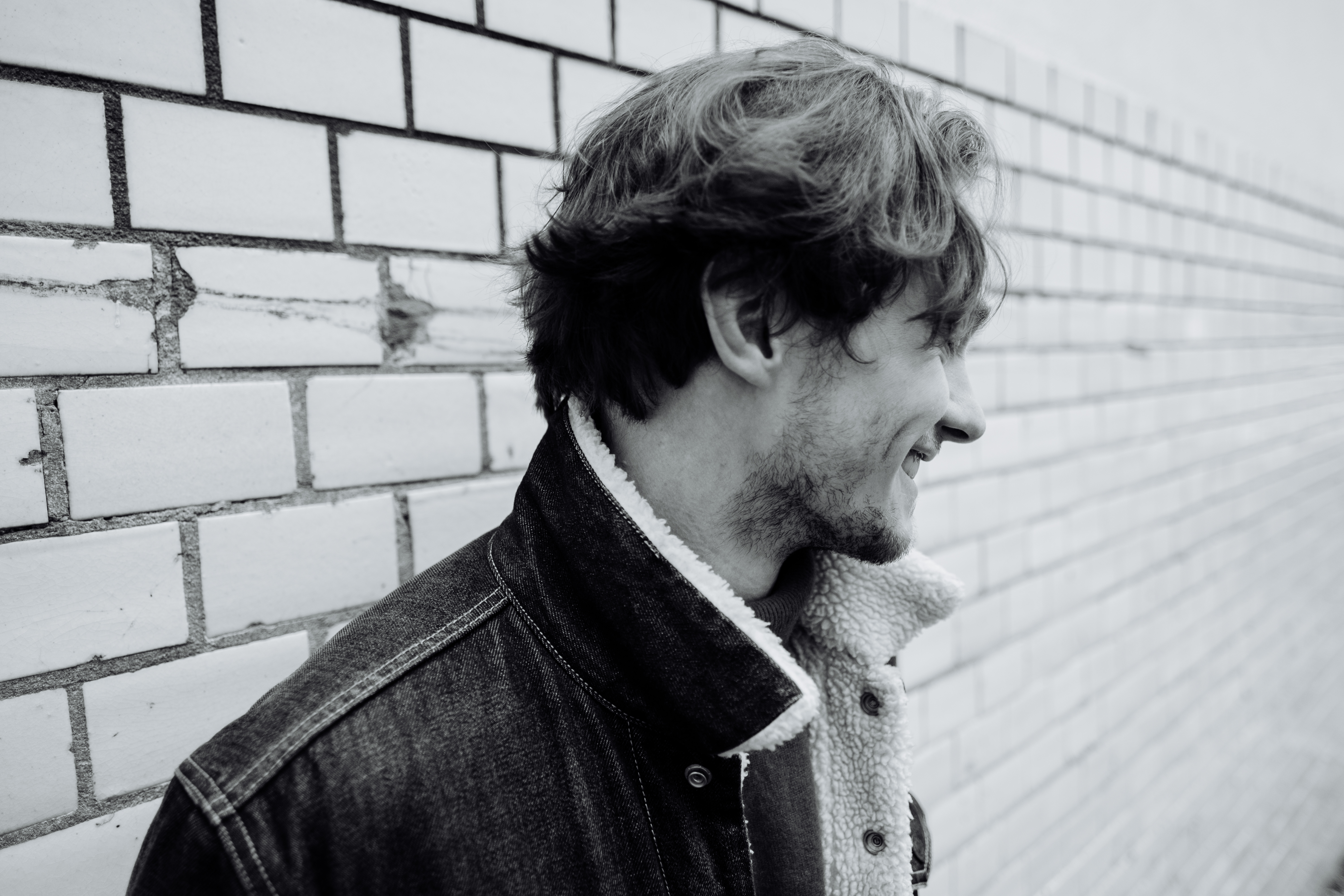
We leave Grunewald just before dusk. As we walk towards his car, the crisp Autumnal leaves crunching underfoot and the joyful dogs barking in the distance, August relaxes as does our conversation, the pressures of a rare media exchange now behind him. He exhales deeply, a sigh of relief, and rubs his face as if waking up from a deep, restorative sleep.
Filling the silence, after a quick comment on the beauty of our surroundings, he explains how nervous he is about the upcoming tour—more so given that he’s no longer sharing the stage with a band to reflect the music’s personal nature—and reveals how important his manager, Alessia, has been in this transformation. Wearing a grin for what feels like the first time, he explains how happy he is that his mother can now connect with his music given its newfound depth, and expresses hope that he has given me enough interesting content to write an insightful piece; and, in the knowledge that we’ve been conversing for over two hours, I laugh in the confidence that there won’t be an issue. But beyond that, in this off-the-record conversation, I’m struck by another side of August, a light-hearted, easy-going, and confident one, the torture now in his wake. I also become acutely aware of his vulnerability and sensitivity, and trait so easily obscured by success. Behind August’s calm and collective demeanour is a faint innocence and endearing fragility, much like his music.
With the tremendous amount that he’s achieved, with all that he’s done, it’s so easy to forget that he is yet to turn 30; this is a young man whose natural talents saw him become deeply immersed in the world of dance music without really having had the chance to contemplate on his direction. To some, this evolution may feel like a loss: August’s slowed-down beats and edits of classics brought so much joy to so many people, and it’s hard to fathom that he won’t be bringing them to clubs around the world anytime soon.
That being said, reflection translated these sentiments into one of excitement. Following my exchange with August, I chatted with Italian ambient musician Gigi Masin, a close friend of August. Masin explained to me how professional and measured August is in his work, always searching for “better results” driven by a “deep need” to “translate his visions into sounds,” confirming my understanding, if nothing more. He describes August as a “perfectionist,” a “poet,” “a musician who is going to continue exploring his intimacy through sounds.”
And with that it becomes clear that the depths August’s talents are only just becoming evident. The detailed confines of club culture have inspired the demise of many a musical talent, but August, with his drive and dedication, is now beginning to transcend it; and you get the sense that he, too, is excited and a little overwhelmed by this. “I really feel I am just scratching the surface of being an artist,” August says. The first chapter was good but the next one might be even better.
All photos: Lotte Thor

